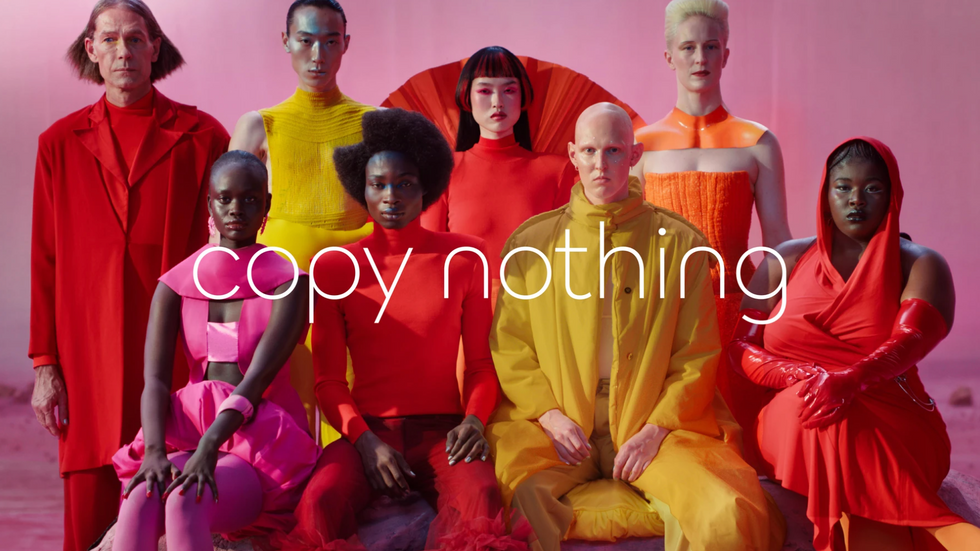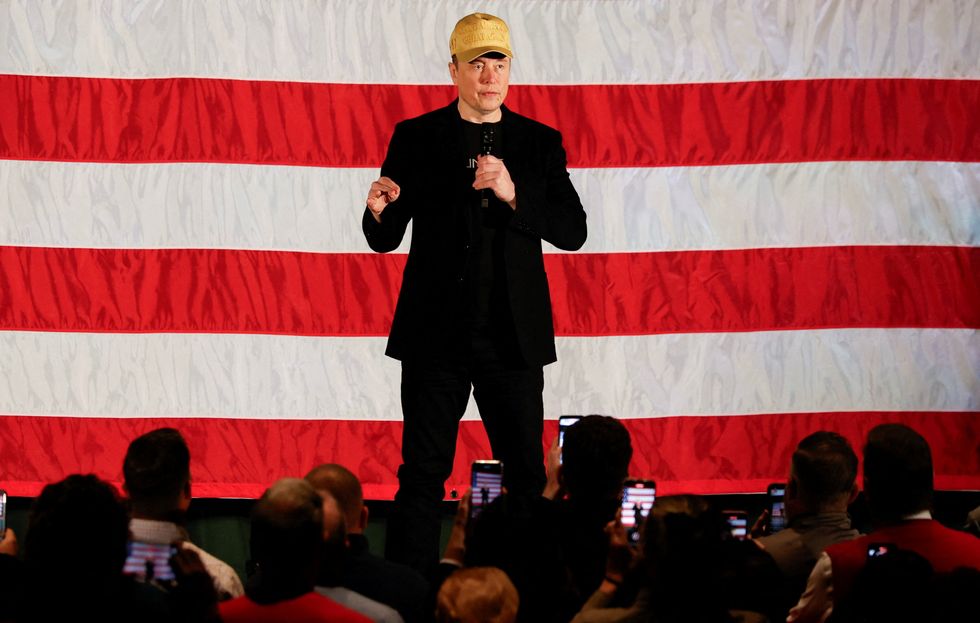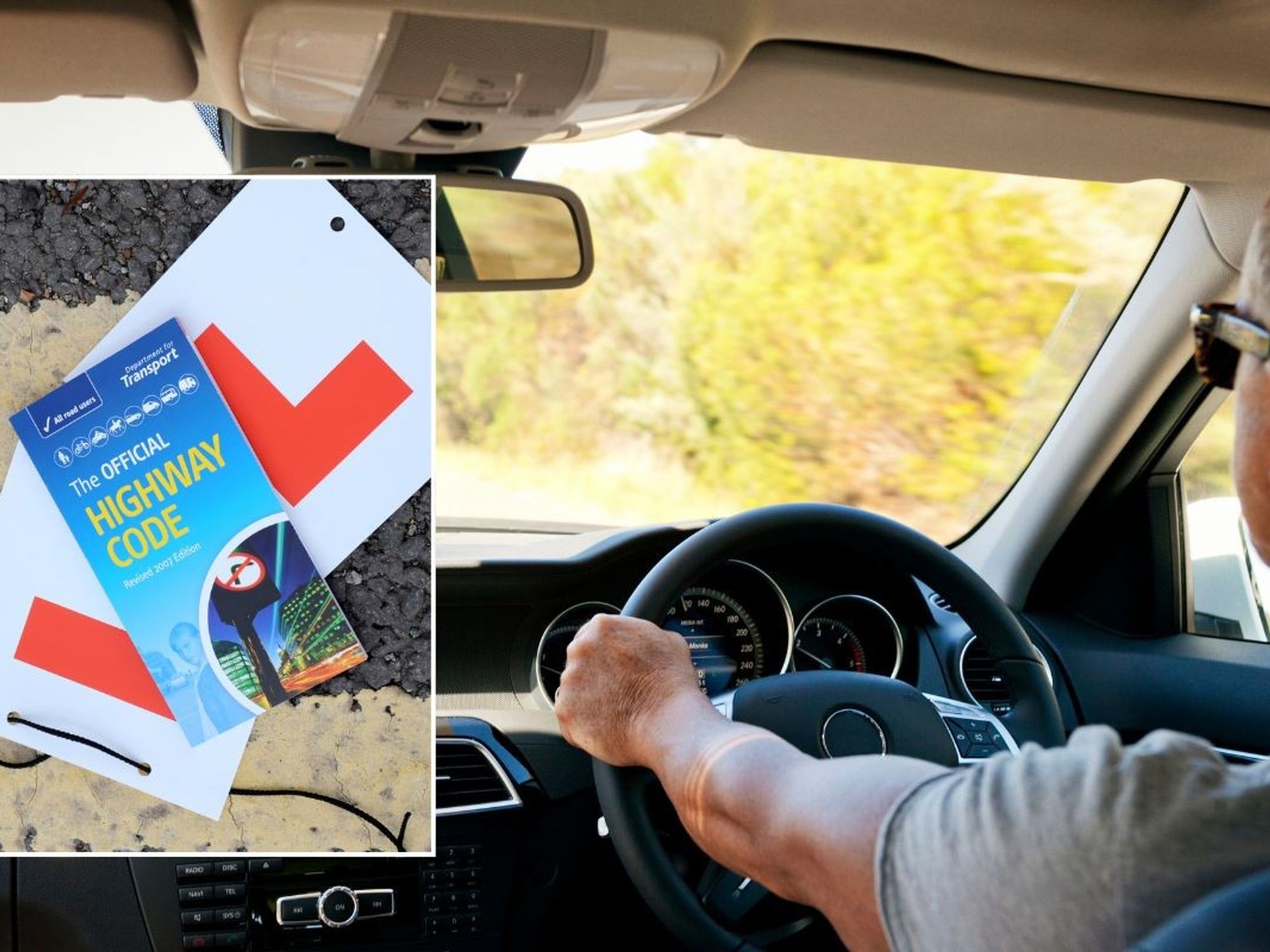Farage delivers damning verdict on woke Jaguar rebrand
GB News
The British carmaker faces stiff competition from both legacy luxury car manufacturers and new entrants in the electronic vehicle market
Don't Miss
Most Read
Trending on GB News
Jaguar has lost its growl - both figuratively and literally.
It has done away with its iconic growling cat logo as it embraces an all-electric future.
The transition has been anything but smooth. A new advert intended to herald this dynamic new era has sparked a Bud Light-style backlash.
The ad features a group of models with diverse backgrounds dressed in vibrant, avant-garde clothing, moving through abstract, brightly coloured sets.
Slogans like "delete ordinary" and "copy nothing" accompany the eye-popping visuals.
With no car in sight, Jaguar loyalists have accused the brand of going "woke" and choosing inclusivity over luxury, performance, and tradition.
The ad has even drawn high-profile figures into its orbit, with US billionaire Elon Musk wryly posting on X: "Do you sell cars?"
Where did it all go wrong?
Jaguar's problems predate the latest ad campaign.
The brand has long struggled with maintaining its once-strong identity.
Critics argue that Jaguar's association with British elegance and racing heritage has been diluted by years of inconsistent product offerings and a lack of clear brand direction.
The proof is in the pudding: In 2023, worldwide sales totalled just 64,241, with five remaining Jaguar models delivering a combined 8,284 US sales that year —a nearly 80 per cent drop from 2017's 39,594.
This not only indicates a decline in sales but that the product offerings might not be capturing the market's interest or maintaining brand prestige.
Jaguar would counter that this was inevitable as it shifted gears towards the EV market. For example, the company has stopped selling new vehicles in the UK, with new models expected to be introduced starting in 2026.
This partly explains why the dealer network in the UK is shrinking to around 20 outlets.

Jaguar loyalists have accused the brand of going "woke" and choosing inclusivity over tradition
Jaguar
Jack of all trades?
Jaguar cannot attribute all its woes to repositioning, however.
It has faced competition from both legacy luxury car manufacturers like BMW and Mercedes and new entrants like Tesla, which have captured the electric vehicle market.
Jaguar introduced models like the XE, XF, and the SUV range (F-Pace, E-Pace, I-Pace) to compete with similar offerings from its German counterparts.
However, these models, which the company has now discontinued, sometimes failed to capture the same level of consumer interest or sales volume as their German competitors due to perceived lesser reliability and brand appeal.
For example, BMW generally appears to be much more reliable than Jaguar based on recent Consumer Reports' data.
Jag's creative boss Gerry McGovern, appeared to acknowledge these competing tensions at a briefing on its upcoming electric range last year.
He said: “If we talk about Jaguar of the past 20 years or so, it’s not that the designs were bad, it’s the fact the strategy was more about creating universal appeal and competing more with mainstream products. I argue that made [Jaguar] more ‘normal’.”
Will Jag's big bet pay off?
Jaguar is betting that by making luxury EVs its entire focus, it will win big in the coming years.
However, previous attempts at disrupting this market have not gone well.
When the Jaguar I-Pace entered the market in late 2018, it was regarded as a pioneer among luxury electric SUVs from traditional automakers.
Winning awards like the World Car of the Year, the I-Pace was seen as the first real rival to Tesla, which dominated the premium EV market.
However, this acclaim failed to translate into sales, with total units sold plummeting year on year from a high of 17,355 in 2019 to 6,409 in 2022 (the last year for which data is available).
LATEST MEMBERSHIP DEVELOPMENTS

Jaguar has a formidable foe in Musk, who will call out what he sees as wokeness
REUTERSJaguar has decided to discontinue the I-Pace, which casts uncertainty over how its new EV range will be received, especially given the competitive nature of the market.
The carmarker certainly has a formidable foe in Musk.
Tesla's market valuation passed one trillion dollars two weeks ago, as investor confidence in American companies grew following Donald Trump's win on November 5 and Musk's role in the incoming administration.
If yesterday's tweet is anything to go by, the eccentric billionaire will also present a challenge to Jaguar's advertising campaigns moving forward.








